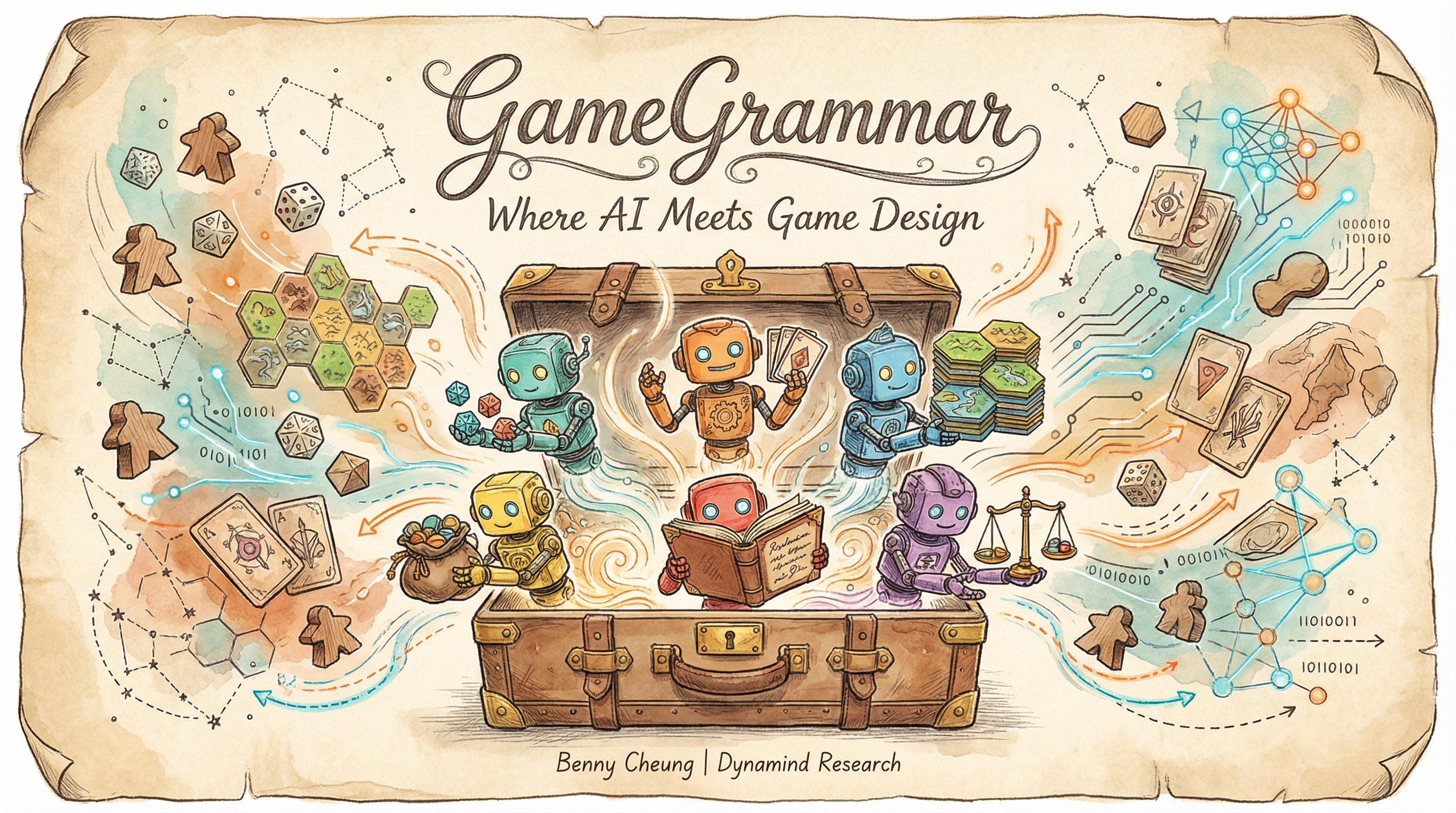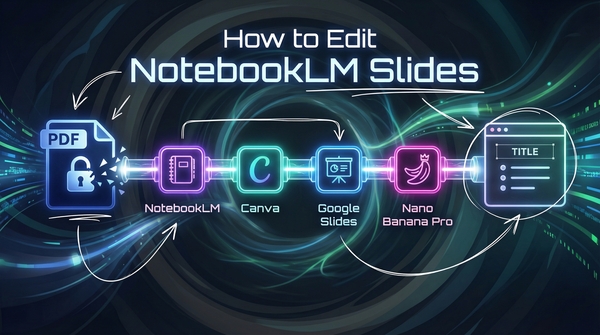artwork by FLUX Kontext
The Rise of the AI-Powered Super Individual
Philosophy of AI
Part 5 of 6The professional identity you’ve spent years building is becoming a liability. The specialized skills and hard-won experience that once guaranteed your value are being systematically eroded by a force that learns faster than any human ever could. This isn’t a distant forecast; it’s a tectonic shift happening right now. Artificial intelligence is not just automating tasks; it’s dismantling the very foundations of the modern workplace, making old methods and established expertise a dangerous anchor in a rapidly changing world.
While this transformation renders old career paths obsolete, it also clears the way for a new kind of professional to emerge. The advantage is shifting away from what you know to how you think. For those who can adapt, leveraging this disruption is the greatest opportunity of our generation, a chance to redefine productivity and influence on an unprecedented scale. This is not another academic debate about the future of work; it is a practical guide for surviving, and thriving, in the here and now.
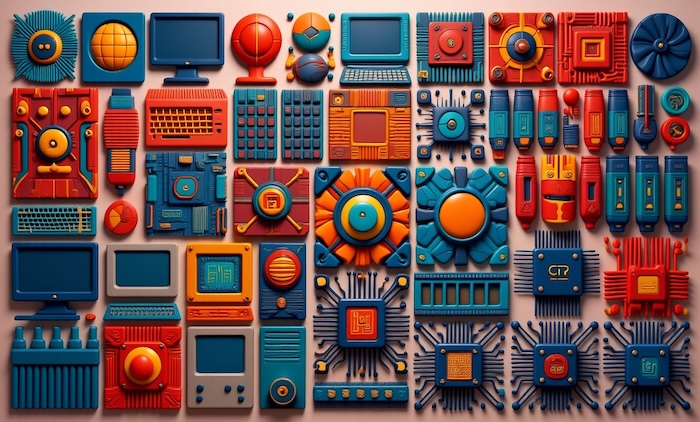
TL;DR
- Experience is Devalued, Meta-Skills are Crucial: AI is making years of accumulated, specialized knowledge obsolete, placing a new premium on timeless “meta-capabilities” like problem-solving, critical thinking, and decisive judgment.
- The Rise of the “Super Individual”: AI empowers individuals to achieve the output of entire teams by acting as an “external brain” or a manager of “silicon intelligences,” leading to unprecedented levels of productivity.
- AI is Eliminating “Fake Work”: The bureaucratic “glue work”—excessive meetings, coordination, and manual data-shuffling between software systems—that arose from organizational inefficiencies is being automated, streamlining workflows.
- The Playing Field is Leveled for Young Innovators: By providing powerful tools and democratizing access to information, AI removes the traditional barriers to entry, allowing young, adaptable individuals to compete with and even outperform seasoned professionals burdened by old methods.
- A New Era of Lean, AI-Native Entrepreneurship: The future belongs to small, agile teams and “super individuals” who can leverage AI to build powerful applications without the need for large organizational structures, shifting the focus from B2B tools to a wider range of consumer and government solutions.
A Survival Guide for the AI-Powered Workforce
For decades, the career ladder was built on a simple premise: accumulate experience. The more years you put in, the more specialized knowledge you gained, the more valuable you became. That premise is now broken. Artificial intelligence is not just another tool; it’s a fundamental shift that is actively devaluing traditional experience and dismantling the very structure of the modern workplace.
The changes coming in the next two to five years will be swift and unforgiving. The comfortable routines, the bureaucratic processes, and even the skills that define your professional identity are being rendered obsolete. This isn’t a distant threat, it’s a present reality. Positions are already being eliminated, not by economic downturns, but by a manager’s simple choice: “Do you want more headcount or more computing power?”. Companies are already quantifying the trade-off in stark terms; Uber’s internal AI “Genie” saved 13,000 engineering hours, while Commercial Bank of Dubai saved 39,000 hours annually with Microsoft 365 Copilot.
The good news is that this disruption creates an unprecedented opportunity. While AI punishes those who cling to the past, it massively empowers those who adapt. A new class of professional is emerging: the “super individual.” This isn’t about being a technical genius; it’s about cultivating a new set of core skills and learning to manage AI as an extension of your own intelligence. This is your guide to becoming one.
The Great Devaluation: When Experience Becomes Baggage
The core of the disruption is this: AI has leveled the playing field for experience and technical accumulation. The complex tasks and industry knowledge that once took years to master can now be replicated or learned in a fraction of the time. A controlled experiment showed developers using GitHub Copilot completed a coding task 55.8% faster than those without it. As one expert notes, “A university student, or even a high school student, can start working on almost the same starting line as an engineer with ten years of experience, and without the cognitive baggage.”
This “cognitive baggage” is the single greatest threat to experienced professionals. Your hard-won identity: “I’m a Java expert,” “I’m a senior marketer,” “I’m a seasoned analyst”, becomes a sunk cost that makes it difficult to pivot. The evidence for this shift is compelling. A study of 5,179 customer support agents found that while AI assistance increased overall productivity by 14%, the biggest gains were seen by novice and low-skilled workers, whose performance improved by up to 34%. Conversely, the most experienced workers saw minimal impact or even slight declines in quality, suggesting that their hard-earned knowledge is now embedded in the tool itself. When you’ve spent a decade mastering a specific workflow, your instinct is to protect it, not to recognize that an AI can now do 80% of it instantly. Young innovators, unburdened by these established identities, are free to ask more fundamental questions and leverage AI in more creative ways.
The End of “Fake Work”
This shift is not just personal; it’s organizational. For years, companies have been built on layers of inefficiency we’ve come to accept as normal. We’ve evolved from internal IT departments (Software 1.0) to a landscape of dozens of standardized SaaS tools (Software 2.0). This created a massive amount of “fake work”—the endless meetings, cross-departmental coordination, and manual data entry required to make these disparate systems talk to each other. An entire class of jobs became a “glue layer,” moving information from software A to software B.
AI, or “Software 3.0,” is the solvent that dissolves this glue. It functions as a flexible “external brain” that can process, synthesize, and manage information without the rigid, click-heavy constraints of traditional software. This is already happening at scale. Consulting firms like Grant Thornton and EY have trimmed workloads by up to 7.5 hours per week by automating 40% of certain tasks. The global online broker Deriv implemented an AI assistant that integrated across Slack, Google Docs, and GitHub, which allowed them to eliminate many meetings as employees could simply query the AI for summaries and data. At the same time, McDonald’s automated much of its recruitment workflow with its “McHire” assistant, reducing the time-to-hire by a staggering 65%.
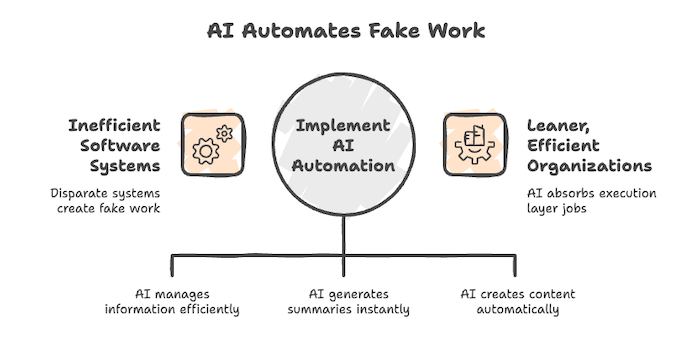
The result is that the “execution layer” of many companies is disappearing. Those jobs are being absorbed into AI capabilities, leading to leaner organizations and a fundamental rethinking of what a “job” even is.
The Rise of the “Super Individual”: Your New Job Description
In this new landscape, value is no longer determined by what you know, but by how you think. While specific technical skills may become obsolete, a new set of “meta-capabilities” are becoming indispensable. These are the skills that cannot be easily replicated by AI and form the foundation of the “super individual.” The productivity gains are real and quantifiable. At the investment management firm BCI, 84% of Microsoft Copilot users saw a 10-20% productivity boost. In finance, Morgan Stanley’s “Debrief” tool saves financial advisors around 30 minutes per meeting by automatically transcribing calls and drafting follow-ups, freeing them for higher-impact client engagement.
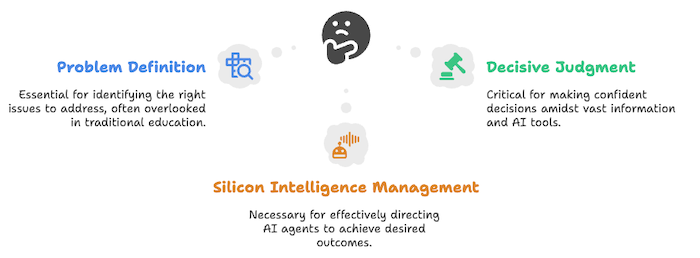
- Problem Definition and Systematic Thinking: More important than solving a problem is the ability to correctly define what problem needs to be solved in the first place. This requires critical, systematic thinking to see the bigger picture, a skill often neglected in traditional education and career paths.
- Decisive Judgment: Ultimately, the most crucial human ability is making decisions. In a world of infinite information and powerful AI tools, the person who can make a confident, well-reasoned judgment call is the most valuable. This is the art of “outsider leading insiders”—where the decision-maker may not be the deepest technical expert, but has the clarity and confidence to direct the resources, including powerful AI agents.
- Silicon Intelligence Management: The new role for many professionals is not to do the work, but to direct the work. Think of yourself as a manager of a team of “silicon intelligences.” Your primary skill is asking the right questions and effectively prompting your AI agents to deliver the desired outcome. The quality of your output is directly tied to the quality of your input.
Your Roadmap for the Next 2-5 Years
Adapting to this new reality requires a conscious and immediate shift in focus. The truly certain opportunity in this era is to use AI to find ways to combine with AI and become a super individual. Here is how you start:
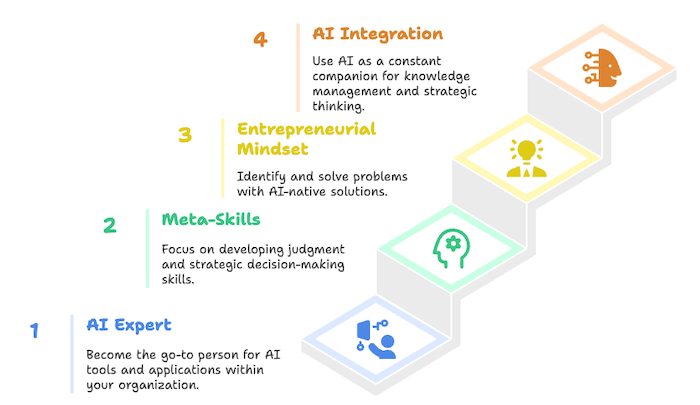
- Become the Go-To AI Expert: Don’t wait to be told. Become an “internal prompt master” within your organization. Be the person who experiments with new AI tools and figures out how to apply them to your team’s workflow. This makes you indispensable.
- Stop Chasing Technical Skills, Start Building Meta-Skills: Instead of learning another coding language, focus on projects and learning that hone your judgment. Study mental models, practice strategic decision-making, and learn how to break down complex problems from first principles. Be aware, however, of the psychological trade-offs. Research shows that while generative AI boosts performance, it can also reduce intrinsic motivation and increase boredom on subsequent tasks performed without AI. The goal is to use AI as a lever for high-value strategic work, not as a crutch that dulls your own engagement.
- Think Like an Entrepreneur: Whether you stay in your company or leave, look for problems that can be solved with AI-native solutions. Young entrepreneurs are already building successful companies with tiny teams by leveraging AI to serve business-to-consumer and even business-to-government markets that were previously inaccessible.
- Integrate AI as Your “External Brain”: Start using AI tools like Cursor not just for specific tasks, but as a constant companion for knowledge management and processing. Offload your cognitive burdens to the AI so you can free up your mental energy for the high-level strategic thinking that truly matters.
Conclusion
The path forward is clear. The comfortable, predictable career track is over. The future belongs to small, agile teams and empowered “super individuals” who can achieve incredible things by leveraging AI. This transformation can be seen as a threat, or it can be seen as a liberation from the “fake work” that has bogged us down for years. The choice is yours. The time to adapt is now.

References
Video
- 课代表立正, AI时代重要的“元能力”, video, 14 Aug 2025. (in Chinese)
- 课代表立正, AI重塑工作流后, video, 15 Aug 2025. (in Chinese)
Article
- Brynjolfsson, E., Li, D., & Raymond, L. R. (2023). Generative AI at Work. National Bureau of Economic Research. (NBER Working Paper No. 31161).
- Commercial Bank of Dubai. (2025, April 6). Commercial Bank of Dubai boosts AI literacy and productivity with Microsoft 365 Copilot, saving 39000 hours. Microsoft Customers Stories.
- HRD Connect. (2023, March 20). Inside ‘McHire’: How AI reduced McDonald’s time-to-hire by 65%.
- Microsoft Customer Stories. (2024, March 12). BCI empowers employees with Microsoft 365 Copilot, realizing 10%-20% productivity boost.
- Morgan Stanley. (2024, June 26). Morgan Stanley Wealth Management Announces Latest Game-Changing Addition to Suite of GenAI Tools.
- Paliwal, Y. (2024, November 2). Genie: Uber’s AI-Powered Copilot for Efficient Incident Management.
- Peng, S., et al. (2023). The Impact of AI on Developer Productivity: Evidence from GitHub Copilot. arXiv:2302.06590.
- Uber Engineering. (2024, October 10). Genie: Uber’s Gen AI On-Call Copilot. Uber Blog.
- Venkataraman, A. (2024). Deriv Boosts Productivity and Reduces Onboarding Time by 45% with Amazon Q Business. AWS Case Study.
- Wright, W. (2025, May 14). Gen AI use at work saps our motivation even as it boosts productivity, new research shows. Harvard Business Review, ZDNet.
- Zhang, C., et al. (2025). Human-generative AI collaboration enhances task performance but undermines human’s intrinsic motivation. Scientific Reports, 15(1), 15105.


